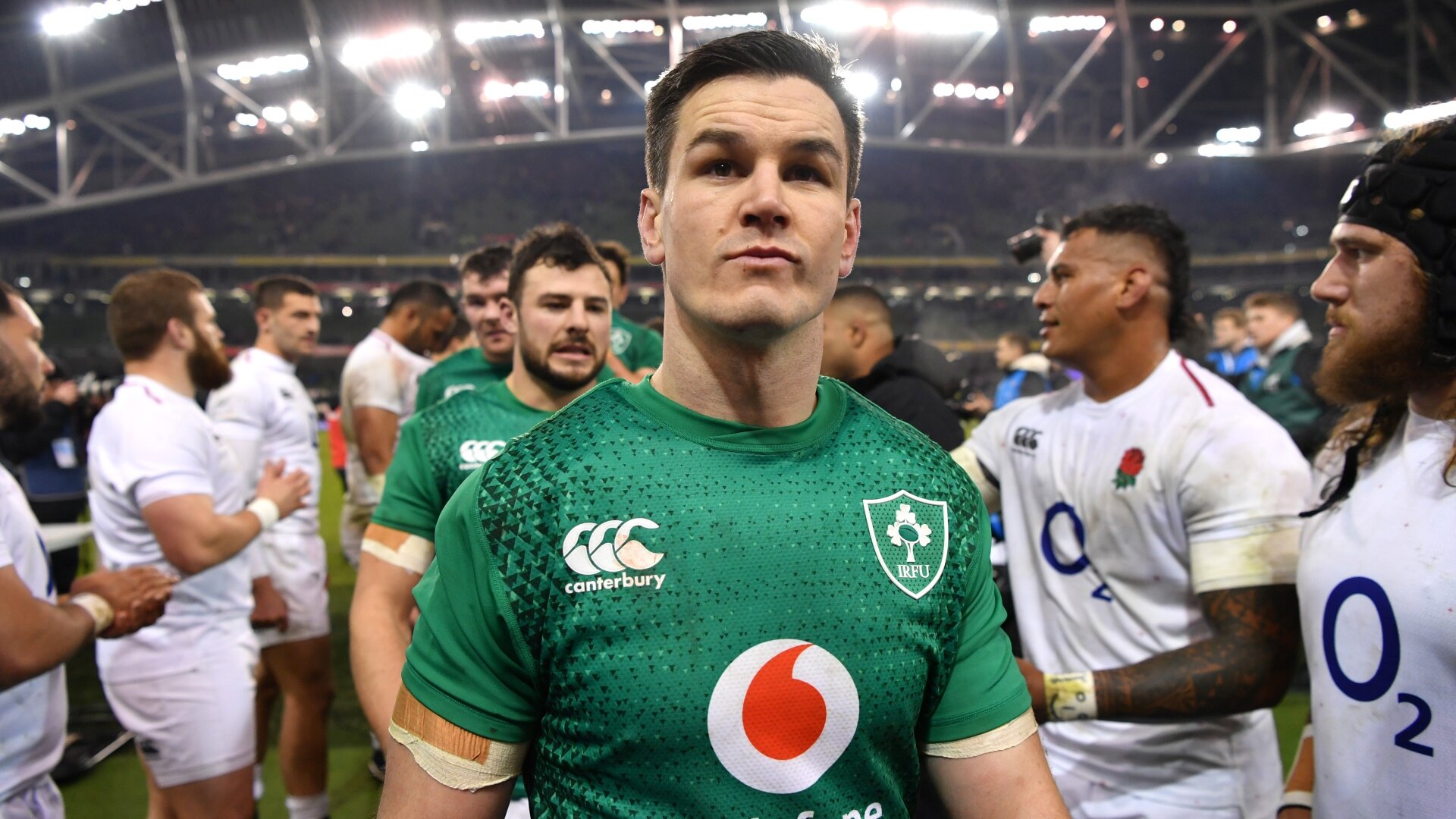Autopsy of Irish Rugby's February nightmare

It’s curious how Joe Schmidt will seek out the sanctuary of Brexit territory later this week to try and solve the intriguing February problem of his suddenly misfiring Ireland team.
A camp in Belfast is the next rendezvous on his squad’s schedule and it will be there, on the other side of a border that has been a crux in agreeing Britain’s exit from the European Union, where he will attempt to rally his troops in the hope they can play their way out of an uncharacteristic performance slump.
Fourteen weeks after feeling on top of the world following the Dublin ambush of New Zealand, the emotions currently surrounding the Schmidt camp occupy a very different end of the spectrum.
It’s a rare event to see them at this low an ebb, their confidence undermined and their play muddled and inaccurate. The only other occasion during the New Zealander’s 65-match reign where there was a comparable drop-off in levels took place three years ago.
They had a valid excuse back then. Their winless three-game, February 2016 sequence – the first time in the championship since 1998 that they had been winless after three matches – was effectively a World Cup hangover following on from the previous October’s quarter-final elimination versus Argentina.
(Continue reading below…)
Watch: Willie John McBride and Bill Beaumont receive honours
But this current slump has no similar get-out-of-jail-free card. Ireland came into 2019 at the top of their game, ready to take on all pretenders to their championship throne before taking their good vibes across to the Far East and create history at the next World Cup.
Their unfolding dose of the yips, though, is a reminder of what can negatively happen when your are reigning Grand Slam champions and feeling so invincible on the back of a multitude of awards and praise. You can quickly lose your way if you’re not careful.
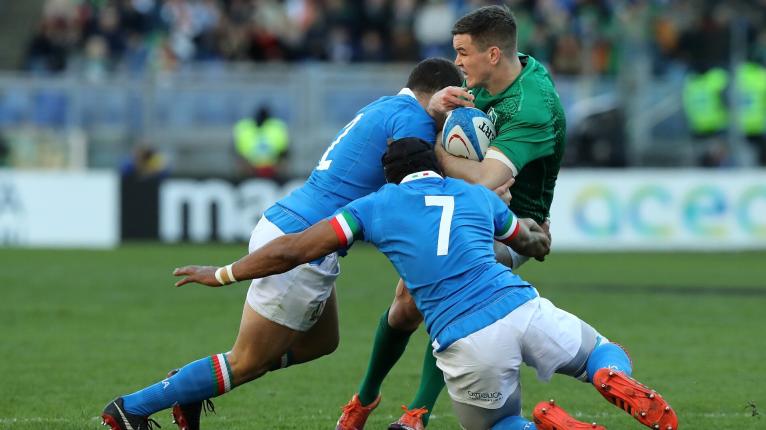
A decade ago, Ireland cruised through 2009 unbeaten in 10 matches but they fell in love with themselves on that back of that success and all the celebrity that came with it. Just five of 11 matches were won the following year, seven of the performances leaving much to be desired.
Staying positive was what pulled Schmidt through his own previous slump, an insipid home draw with Wales followed by ugly losses away to France and England. “Any hesitation at this level is a recipe for disaster,” he said at the time. “We have got to maintain our confidence, keep our heads up, roll our sleeves up and go again… it hasn’t been smooth sailing but that builds a bit of character.”
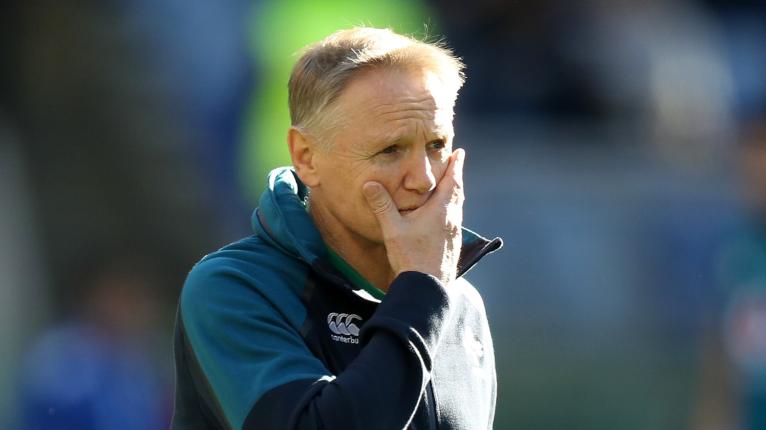
The next few weeks will reveal so much more about the character of Schmidt’s current bunch of players – and even the coach himself. It doesn’t at all tally that a team which stopped the nation with its exploits versus New Zealand can now so quickly appear out of sorts and struggling for form.
If the tumble isn’t rectified in their next outing, the March 10 hosting of France in Dublin, it will be high time to query if Schmidt’s post-New Zealand revelation that he is to quit his Ireland post at the end of the 2019 World Cup has unwittingly had a negative effect on his ability to prise the best from his charges.
Watch: Joe Schmidt & @peterom6 at Ireland's post-match press conference#TeamOfUs #ITAvIRE #ShoulderToShoulder https://t.co/0SaMmFHHmD pic.twitter.com/hdmpMv69bT
— Irish Rugby (@IrishRugby) February 25, 2019
It’s a weird situation for Irish rugby. Not only to have a coach announce his intention to step down 12 months in advance of his exit, but to also nail to the mast who his predecessor will be.
The IRFU’s way had previously been to fire the incumbent and only then recruit a replacement, but we already know well in advance that assistant Andy Farrell will be promoted on this occasion. Has this long-term planning privately rankled with some people and affected performance? It’s a theory that will gain legs if displays don’t quickly get better.
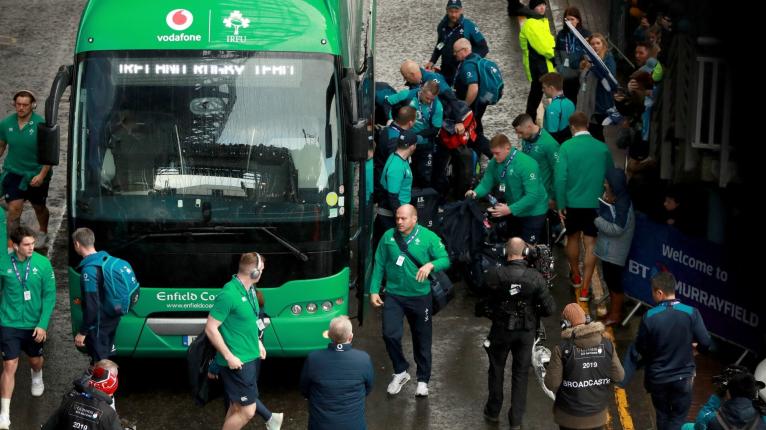
Sift through the evidence of February’s pedestrian 240 minutes and the main takeaway is that too many of Ireland’s more established players didn’t look their reliable old selves. Rob Kearney, Johnny Sexton, Conor Murray and Sean O’Brien were nowhere near their world-class standards and it had a draining effect.
Kearney was unable to help better shut the defensive door when the scramble was on to prevent serial losers Italy from scoring two tries in a bizarre five-minute spell in Rome. Sexton and Murray have oozed narkiness with their body language.
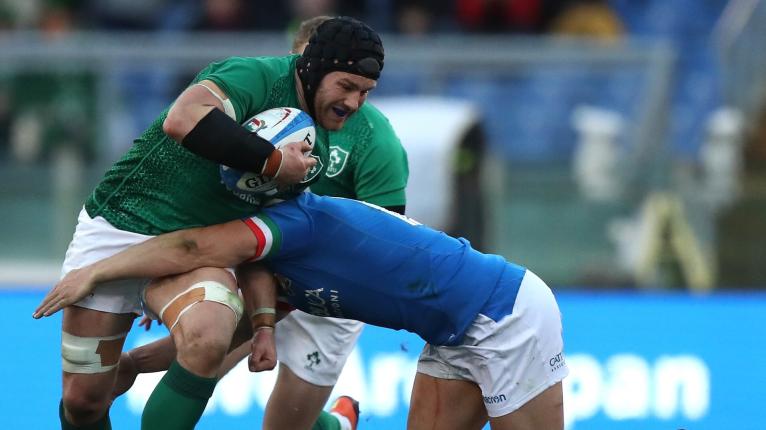
It’s a deflating mood not help by the increased physical attention the 2018 World Player of the Year has attracted, nor by the scrum-half’s sudden box-kicking inaccuracy and multiple handling errors.
As for O’Brien, he has failed to escape all the wear and tear of too many injuries and he has looked very ordinary. His concession of three penalties in a 12-minute spell invited Italy to fight their way back from a poor start and be ahead by the interval.
Given the February pattern of underperformance, the worry is that Ireland’s back row has been found out. Against England, Peter O’Mahony and CJ Stander were successful in crossing the gain line on a respective 38% and 36% of their combined total of 19 carries.
Versus Scotland, O’Brien and O’Mahony each had only a 50% success rate for their 27 carries, while over in Rome O’Brien was limited to a 43% success and Jordi Murphy 57% on their 21 carries.
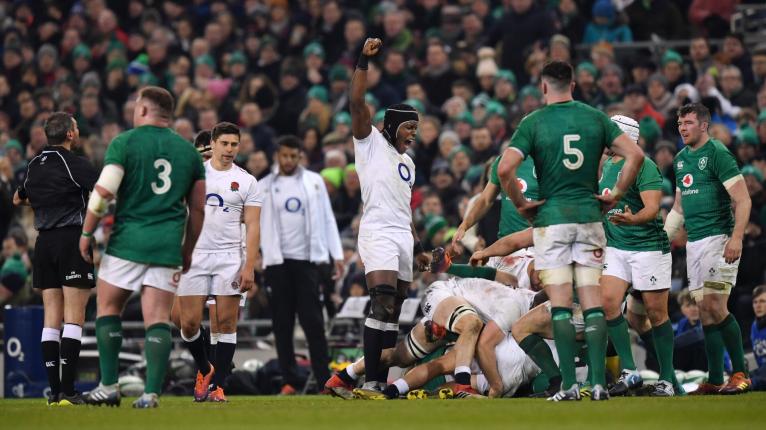
That is nowhere near a high enough success rate for a back row that appears to be suffering from a selection imbalance, and their lack of dominant physicality is a hugely contributory reason why Ireland’s collective figures for taking possession over the gainline came in at 45% against England, 38% in Scotland and 51% at Italy.
The impression is that the approach of Schmidt – who showed he is human by getting wrong his selection of Robbie Henshaw to start at full-back against England and Sean Cronin as starting hooker in Italy – is being worked out by the opposition.
It’s as if after burning the midnight oil night after night this winter, rival coaches can now confidently predict what the prime Irish ball carriers will try and do and they have strategised accordingly to limit their influence.
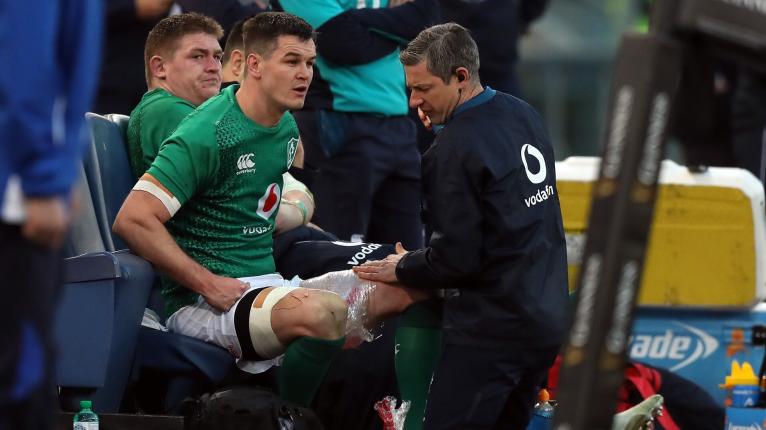
Look, for instance, at Tadhg Furlong’s gainline statistics when carrying the ball a total of 34 times – a massively effective operator throughout 2018, he has only had a 45%, 38% and 51% success rate in his three recent outings which is costly.
Overall, the team’s all-round ability to secure better go-forward has checked their 2018 swagger, Ireland restricted to just 36% territory in Dublin, and 40% and 47% in Edinburgh and Rome. You can’t create all that much when forced to play so much in your own half. It has to change.
Round 3 complete, with Wales sitting pretty at the summit ???????
How do you think this table will look at the end of the Championship?#GuinnessSixNations pic.twitter.com/uX4sf4FJuk
— Guinness Men's Six Nations (@SixNationsRugby) February 24, 2019
One of Schmidt’s most repeated sayings during his six-year reign is that ‘nothing is every linear’ and Ireland’s unexpected downward spiral this past month illustrates this precisely.
There are always up and down periods and this particular down, which hasn’t been helped injuries that have placed a question over Ireland’s alleged strength in depth, isn’t a confirmed crisis yet.
Unlike in 2016, when they were already out of the title race just three games in, they have still wrangled two winning results that keep them in the hunt to retain their hard-won trophy from 2018.
Beat France with an improved display and they can head to Cardiff with their chances still very much alive. That is no bad prospect given the grim spectacles of a best-forgotten February.























































































